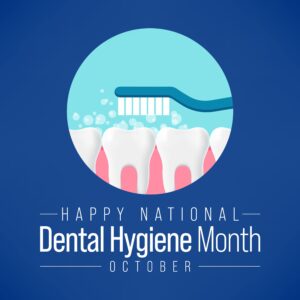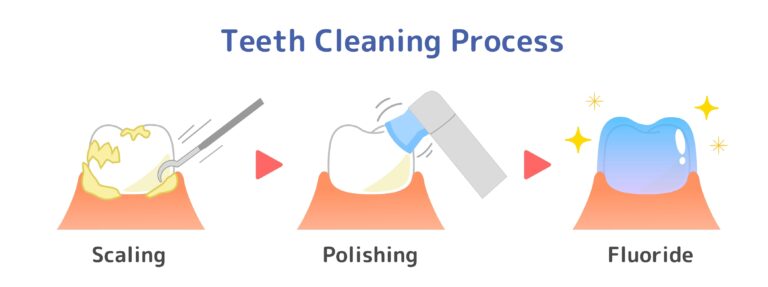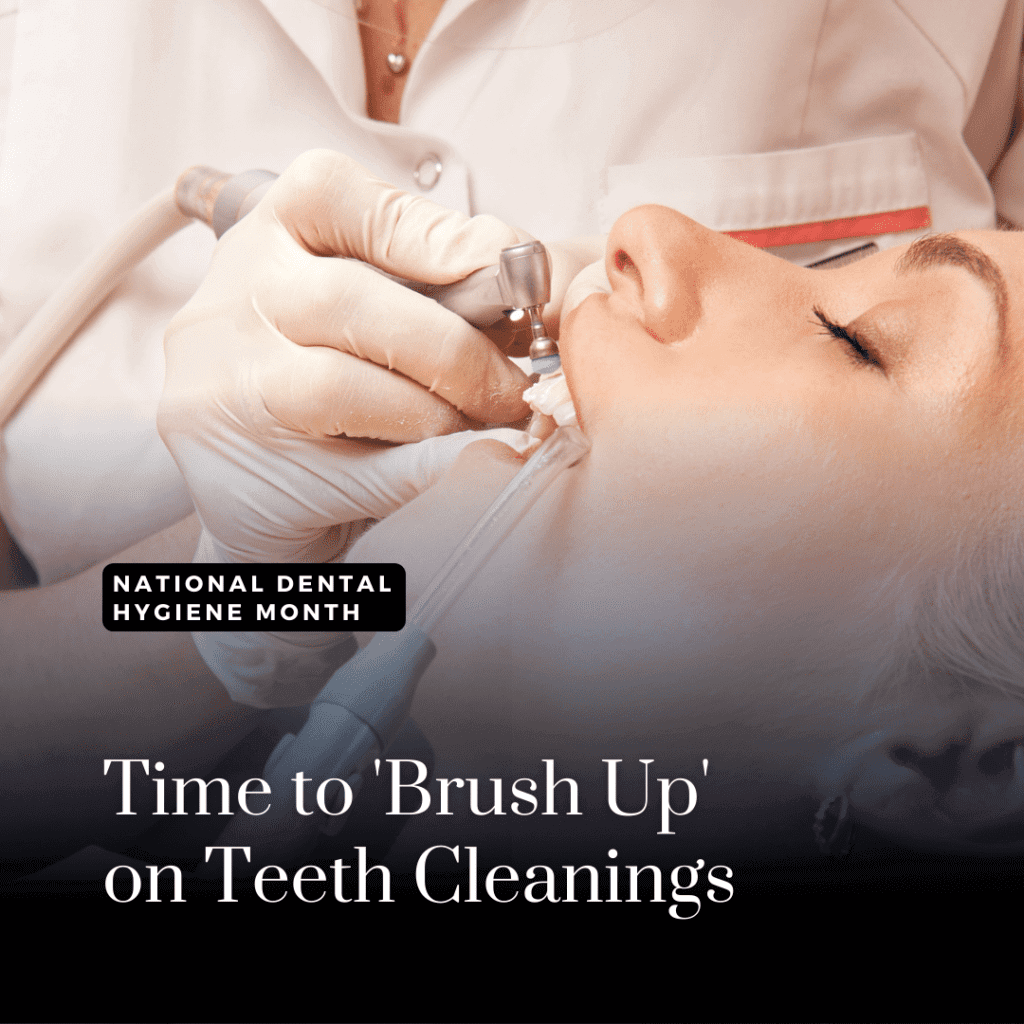In honor of National Dental Hygiene Month this October, it’s time to ‘brush up’ on Teeth Cleanings! Teeth cleanings are an important part of your dental health routine. In fact, the American Dental Association recommends having your teeth cleaned at least twice a year. In this blog, we’ll talk about what Teeth Cleanings are all about, the steps of a Teeth Cleaning, and why they’re important.
In This Article:
- What is a Teeth Cleaning?
- Steps of a Teeth Cleaning
- Why Teeth Cleanings are Important

What is a Teeth Cleaning?
Teeth cleaning is also called prophylaxis (pro-fuhlak-sis), which means preventing disease in the future. Teeth cleanings help remove plaque that has built up on the teeth. Plaque is a sticky film of bacteria that forms on your teeth after you eat or drink. If plaque gets left on your teeth for too long, then it can harden into tartar. Teeth cleanings remove both plaque and tartar so they cannot lead to tooth decay, cavities, gingivitis (gum disease), and bad breath.
Steps of a Teeth Cleaning:
A teeth cleaning typically includes:
- An exam to check for tooth decay, cracks, chips or other problems, such as gingivitis (gum disease). You may also have dental x-rays taken to check for cavities and evaluate your jawbone.
- Removing plaque and tartar with hand tools known as dental scalers or ultrasonic instruments (water scalers). During this step, your hygienist will carefully scrape the entire front and back surface of your teeth to remove as much tartar as possible. They will also remove plaque and tartar along the gum line, and may even clean within gum pockets that may have formed from gum recession.

- Teeth polishing with a gritty toothpaste and grinding tool in order to remove any small fragments of tartar from the surface of the teeth. Although this practice is safe and beneficial, teeth polishing should only be performed by a dental professional to prevent enamel erosion.
- Flossing to remove any leftover plaque, toothpaste, or other debris. This can also help your hygienist locate areas where you may be missing.
- Rinsing with a fluoride rinse to flush the mouth.
- Applying a fluoride gel or paste to the teeth, then sealing the teeth with a fluoride varnish to strengthen the enamel and minimize future plaque accumulation.
Why Teeth Cleanings are Important
Teeth cleanings help prevent tooth decay, cavities, gingivitis (gum disease), and bad breath. When plaque is left on the teeth for too long it can harden into tartar which causes more problems than just a yellow smile. Tartar also makes your gums bleed more easily, which can lead to gingivitis (gum disease), bad breath, and even tooth loss. Teeth Cleanings are also an opportunity for your dental hygienist to check if any fillings need to be replaced, screen for oral cancer, and discuss the best ways you can care for your teeth at home.
Overall, teeth cleanings are an important part of your dental health routine. Teeth cleanings help remove plaque that has built up on the teeth, preventing tooth decay and cavities in the future. Teeth cleanings also provide you with a chance to have your mouth examined or checked for oral cancer. If it has been longer than six months since your last dental cleaning, be sure to schedule a cleaning in honor of National Dental Hygiene Month!




